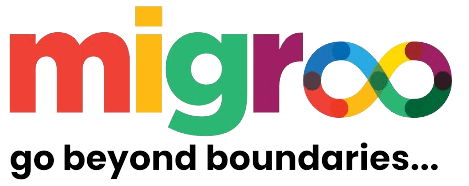In today’s interconnected world, communication is the bridge that connects cultures, economies, and opportunities. English may dominate the global business scene, but learning a second language can dramatically enhance your career prospects. Among the many languages you can learn, French stands out as a powerful tool for global career growth.
Spoken by over 300 million people across five continents, French is not just the language of romance—it’s also the language of diplomacy, international business, and innovation. Whether you’re looking to work abroad, expand your professional network, or gain an edge in a competitive job market, learning French can open doors you never knew existed.
1. French: A Global Language of Influence
French is the official language in 29 countries and is widely used in regions like Europe, Africa, North America, and parts of Asia and the Pacific. It is also one of the official languages of key international organizations such as:
- The United Nations (UN)
- The European Union (EU)
- The International Olympic Committee (IOC)
- The International Red Cross
- UNESCO
This makes French a valuable asset if you aim to work with global NGOs, diplomatic services, or multinational corporations.
2. Expanding Career Opportunities Worldwide
Learning French significantly increases your employability. Many international companies seek employees who can communicate in both English and French—especially in industries like:
- International Trade – France is one of the largest economies in the world.
- Tourism & Hospitality – French-speaking tourists make up a large share of global travelers.
- Fashion & Luxury Goods – French brands like Louis Vuitton, Chanel, and L’Oréal dominate the global market.
- Diplomacy & International Relations – French is a key working language in embassies and global summits.
- Aviation & Travel – Airlines prefer bilingual employees to serve international customers.
With French on your resume, you can target roles in Paris, Montreal, Brussels, Geneva, Dakar, and other French-speaking hubs.
3. Boosting Earning Potential
Language skills often lead to higher salaries. According to multiple career studies, employees who are bilingual can earn 5–20% more than their monolingual peers.
In India, for instance, professionals with French proficiency can find high-paying roles in:
- BPO and KPO companies serving French clients.
- Export-Import businesses dealing with France or French-speaking Africa.
- MNCs like Capgemini, Accenture, Amazon, and Deloitte, which often require French-speaking professionals.
4. French for Students: Education and Scholarships
If you’re a student planning to study abroad, French can be your ticket to top-ranking universities in France, Canada, Belgium, and Switzerland. Institutions like Sorbonne University, HEC Paris, and Université de Montréal offer quality education—often at lower tuition rates than English-speaking countries.
Many French-speaking countries provide special scholarships to international students who can communicate in French. This not only reduces the financial burden but also helps you integrate into the local culture faster.
5. The Language of Culture, Science, and Innovation
French is a treasure trove of cultural and intellectual heritage. It is the language of philosophy, literature, cinema, and art, with legendary contributors like Victor Hugo, Voltaire, and Monet.
In addition:
- French is the third most used language on the Internet after English and German in certain regions.
- It plays a vital role in scientific publications, making it valuable for researchers.
- French-speaking Africa is one of the fastest-growing markets, offering future business potential.
6. Networking with 300+ Million French Speakers
Speaking French allows you to connect with over 300 million people worldwide, expanding your professional network far beyond borders. Whether you attend international conferences, participate in global projects, or collaborate online, knowing French helps you build trust and rapport faster.
Networking opportunities include:
- International business forums.
- Cross-border start-up collaborations.
- Alumni networks of French universities.
7. French as a Stepping Stone to Other Languages
French shares similarities with other Romance languages such as Spanish, Italian, Portuguese, and Romanian. Once you’ve learned French, it becomes easier to learn these languages—making you a true multilingual professional.
8. When Should You Start Learning French?
The best time to start learning French is now. Whether you’re still in school, pursuing higher education, or already working, adding French to your skill set can only benefit your career.
- For Students (After 12th): Ideal time to prepare for higher studies abroad or get an edge in college placements.
- For Professionals: Helps in promotions, career switches, or international job transfers.
- For Entrepreneurs: Opens up new markets in French-speaking regions.
9. Where to Learn French?
You can learn French through:
- Language Institutes – Offer structured courses with certifications like DELF/DALF.
- Online Platforms – Flexible learning for busy schedules.
- Study Abroad Programs – Full immersion in a French-speaking country.
If you’re in Delhi, you’ll find excellent options such as Migr8 – Study Abroad Consultant, Alliance Française, and other reputed language schools. Migr8 offers customized French courses designed for career growth, higher studies, and international job placements.
10. Top Industries Where French Is an Asset
- Hospitality & Tourism
- Fashion & Luxury Goods
- Aviation & Travel
- Education & Translation
- IT & Tech Services
- Government & Diplomacy
11. Real-Life Success Story
Take the example of Aarav Mehta, an Indian engineering graduate who learned French before applying for jobs in Canada. Within a year, he landed a role in Montreal with a package 40% higher than his peers—solely because he could handle both English and French clients.
12. Common Myths About Learning French
- “French is too difficult” – In reality, French shares many words with English.
- “It’s only useful in France” – French is spoken in over 50 countries.
- “I can learn it only in school” – Anyone can start at any age, thanks to online and offline courses.
FAQs – Learning French for Global Career Growth
Q1: How long does it take to become fluent in French?
A: With regular practice, you can achieve conversational fluency in 6–12 months.
Q2: Is French useful for jobs in India?
A: Yes, many MNCs in India require French-speaking professionals for client servicing, sales, and technical roles.
Q3: What certifications are best for French learners?
A: DELF and DALF certifications are internationally recognized and boost your CV.
Q4: Can I learn French after 12th?
A: Absolutely! Many students start after 12th to prepare for study abroad programs or bilingual job roles.
Q5: Is online learning as effective as offline classes?
A: Yes, with structured lessons, interactive sessions, and consistent practice, online courses can be just as effective.
Conclusion
Learning French is more than just acquiring a new language—it’s investing in a future full of global opportunities, cultural richness, and professional growth. From international job placements to higher salaries and scholarships, the benefits of French are immense.
Whether you’re a student aiming for foreign education, a professional seeking a career boost, or an entrepreneur expanding your business, French can be the bridge to your global success.
If you’re ready to take the first step, choose a trusted institute like Migr8 – Study Abroad Consultant in Delhi, and let your journey to becoming a global professional begin.




